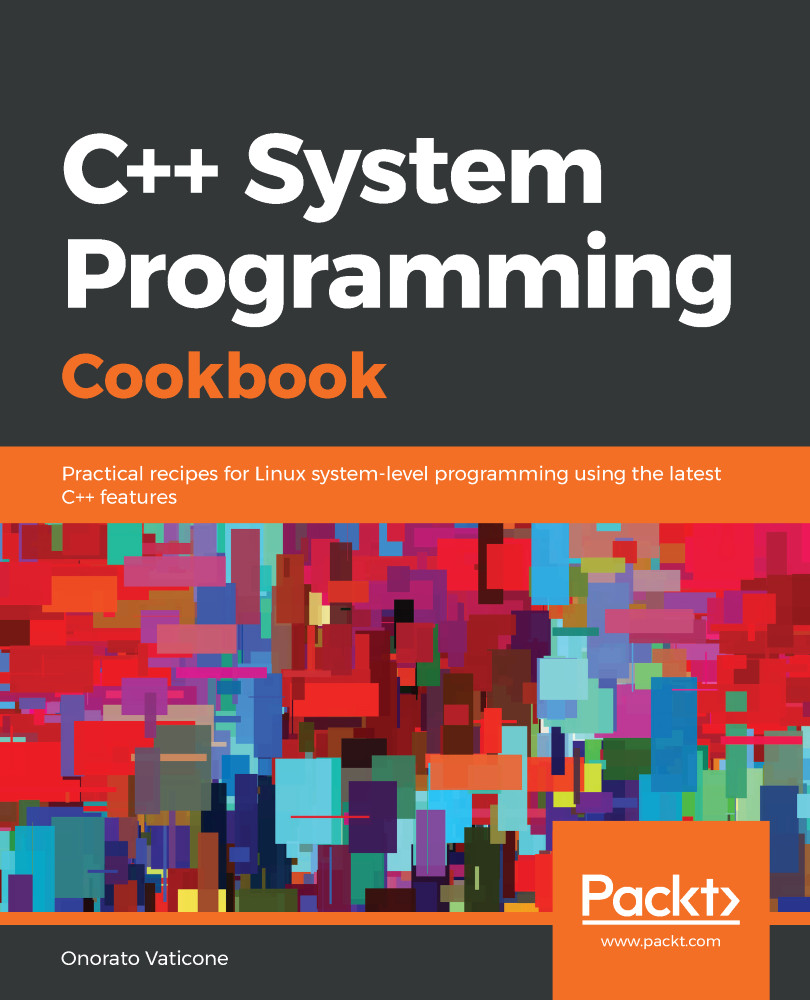The C++20 standard added Ranges, which are an abstraction of containers that allow the program to operate uniformly on containers' elements. Furthermore, Ranges represent a very modern and concise way of writing expressive code. We'll learn that this expressiveness is even greater with pipes and adaptors.
-
Book Overview & Buying

-
Table Of Contents

C++ System Programming Cookbook
By :

C++ System Programming Cookbook
By:
Overview of this book
 Free Chapter
Free Chapter
